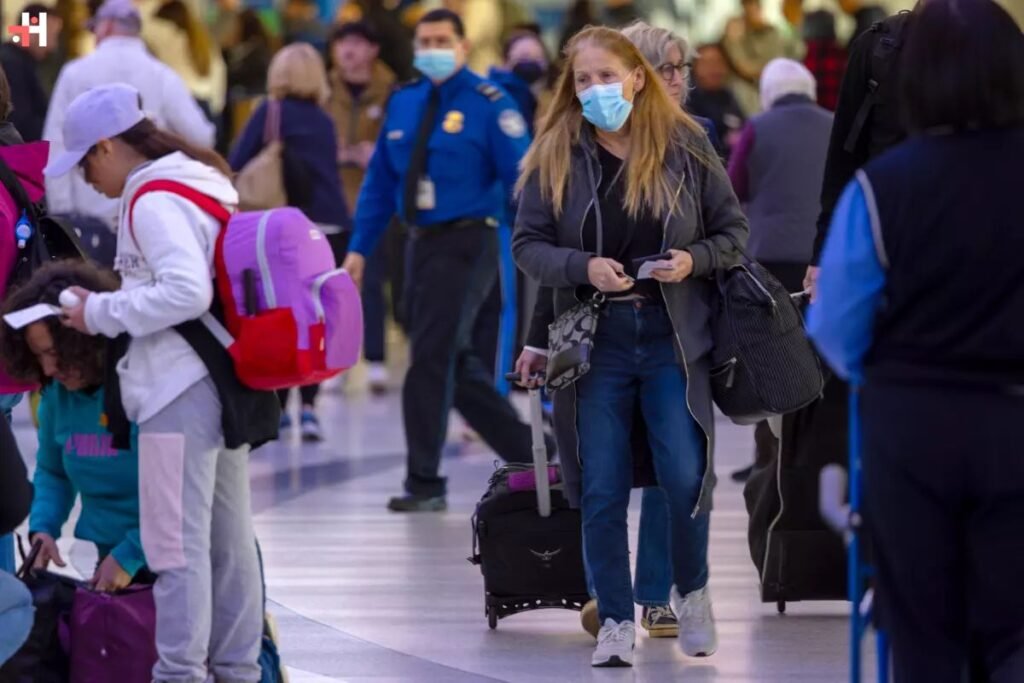(Source-latimes)
For the past few months, JN.1 has been the prevailing COVID-19 variant in the United States, accounting for the majority of cases. However, a new variant, KP.2, has now become the dominant strain and may lead to a rise in cases this summer. According to the Centers for Disease Control and Prevention (CDC), KP.2, an offshoot of the omicron variant, now constitutes approximately 28.2% of COVID cases, up from just 1.4% in mid-March.
Potential Summer of COVID-19 Variant
Historically, the U.S. has experienced summer waves of COVID-19 variant , and experts anticipate a similar trend this year. Dr. Peter Chin-Hong, an infectious disease expert at the University of California, San Francisco (UCSF), told ABC News, “We’ve had four consecutive increases of COVID in the summers over the last four years. We expect an increase this summer too, but it probably won’t be large and it probably won’t be as profound as wintertime.” He described the expected rise as more of a “swell” rather than a “wave” or “surge,” likening it to a gentle swell at the beach rather than a crashing tsunami.
Early data indicates that KP.2 has more mutations in the spike protein than JN.1. The spike protein is crucial for the virus to attach to and infect cells, which could potentially make KP.2 more infectious. “The virus’ capacity to evolve is anticipated, and it’s something we’ve prepared for in our ongoing public health response,” said Dr. John Brownstein, an epidemiologist at Boston Children’s Hospital. He noted that, given the seasonal patterns of COVID-19 variant , a slight uptick in cases this summer could be expected, making surveillance and vaccination efforts essential.
Severity and Vaccine Effectiveness
Experts emphasize that there is no clear evidence that KP.2 causes more severe illness or is more deadly than previous variants. While more studies are needed to determine if KP.2 is better at evading current vaccines, Dr. Chin-Hong noted that vaccines appear to be providing good protection. At UCSF’s hospital, the common factor among patients hospitalized with severe COVID was that none had received the updated COVID vaccine released in fall 2023. “If you haven’t done so, go ahead and get it,” Chin-Hong advised, stressing the importance of vaccination for those who are immunocompromised or over the age of 65.
Current Hospitalization Trends
COVID hospitalizations in the U.S. have not been increasing, a significant milestone. As of late April, the U.S. reported 5,615 weekly COVID hospitalizations, a stark contrast to the peak of over 150,000 weekly admissions during the omicron surge in early 2022. This indicates that the nation is in a much better position to combat COVID than at the pandemic’s outset.
Despite the emergence of new variants, experts urge the public to remain vigilant but not to panic. “We have to remember this virus is now part of the respiratory mix we handle yearly, just like influenza,” Brownstein said. “We try to stay ahead of the game to prepare for any possible surge or to understand how well the vaccines are matched.” He stressed the importance of staying up-to-date with vaccines and staying home when sick to help manage the ongoing presence of COVID-19.
In summary, while the rise of KP.2 may lead to a slight increase in cases this summer, the overall outlook remains positive, thanks to vaccination efforts and improved public health responses.










